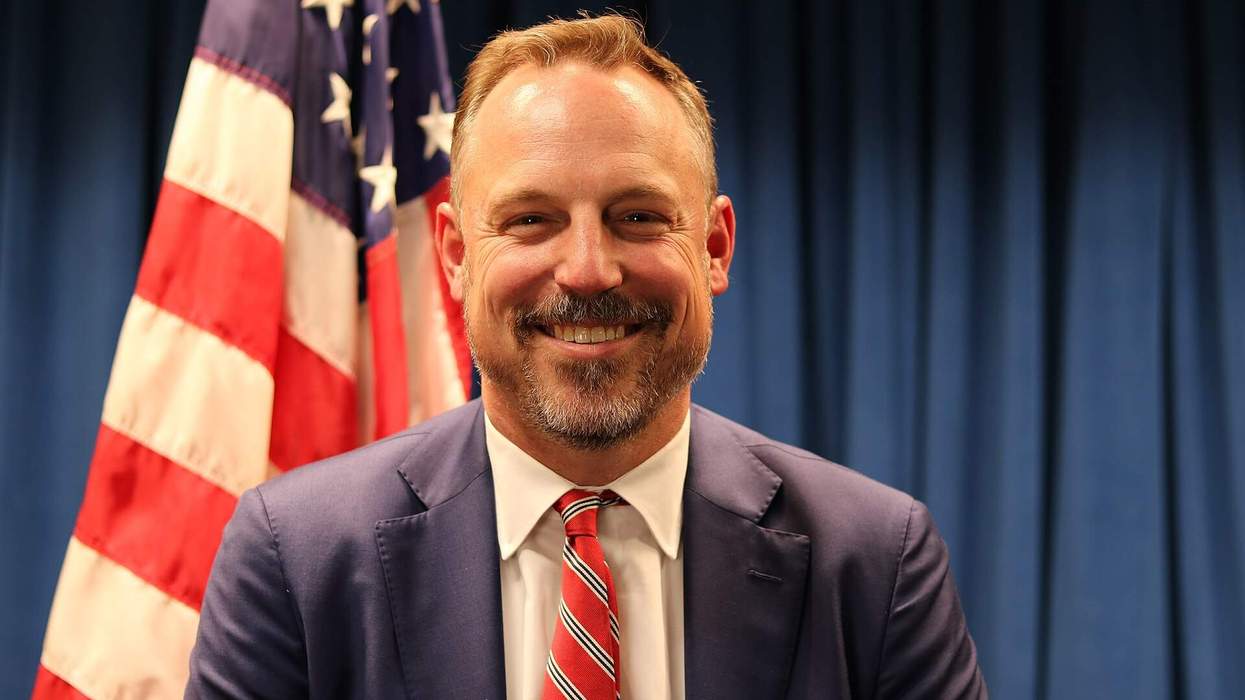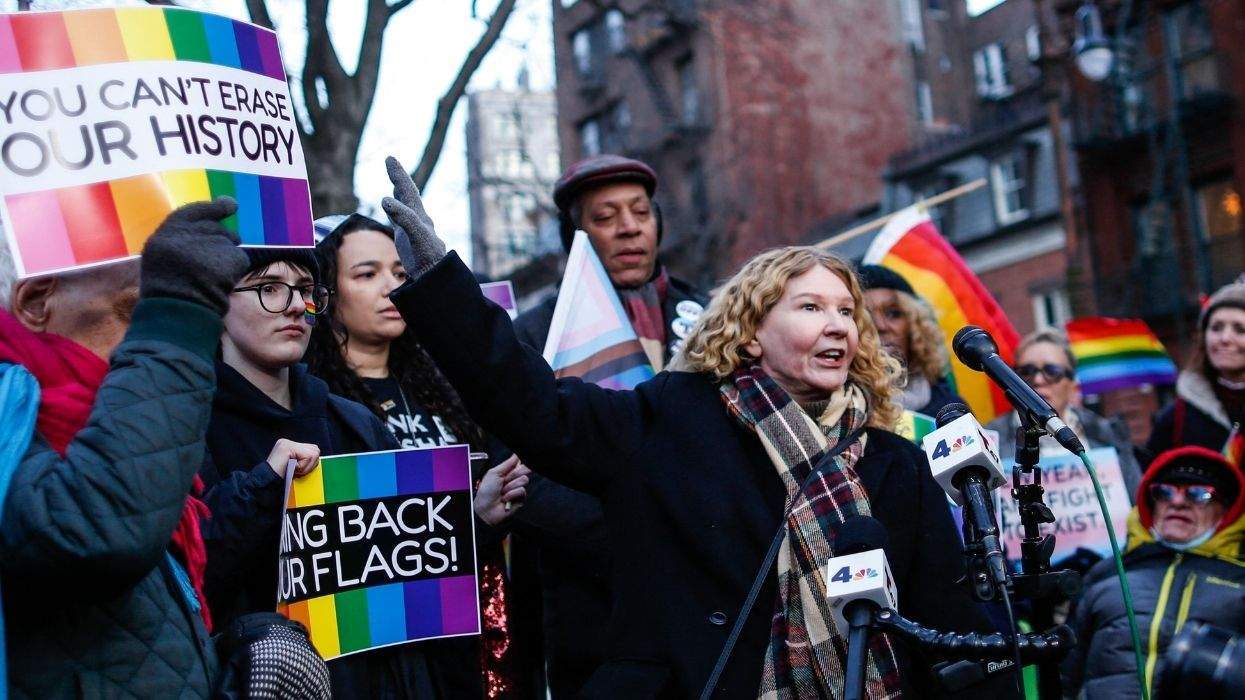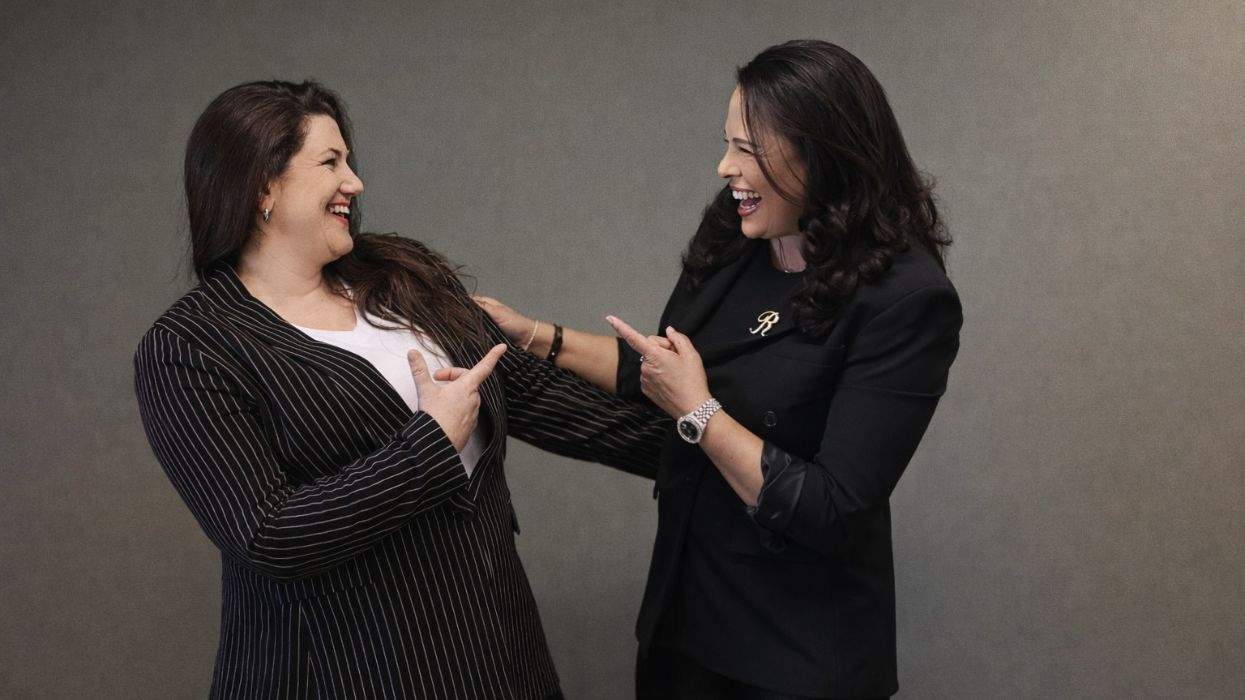The U.S Supreme Court’s six conservative justices, during oral arguments Tuesday, appeared sympathetic to parents who want to opt their children out of lessons that feature LGBTQ+ books.
Keep up with the latest in LGBTQ+ news and politics. Sign up for The Advocate's email newsletter.
The arguments came in the case of Mahmoud v. Taylor, in which some religious parents in Montgomery County, Maryland, seek a ruling that will force the Montgomery County Public Schools to offer the opt-outs and perhaps set a precedent for public schools around the nati
Parents were offered an opt-out when several LGBTQ-themed books were adopted for the language arts curriculum in October 2022. However, it became difficult to accommodate the number of opt-outs, according to the school district, and school officials worried that students who are part of the LGBTQ+ community or have family members who are would be subjected to social stigma and isolation. The opt-out policy also put the district at risk of noncompliance with antidiscrimination laws. So the district ended the policy in 2023.
Parents from several religious faiths, including Islam, Roman Catholicism, and the Ukrainian Orthodox Church, sued to get the policy reinstated. Both a U.S. district court and an appeals court denied their request, so they appealed to the Supreme Court.
“During more than two and a half hours of argument on Tuesday, several justices read aloud from the text of the disputed storybooks, some of which referred to drag queens and same-sex marriage,” The Washington Post reports. “Conservative justices repeatedly pressed the lawyer for the Maryland school system on why it could not easily accommodate the religious parents and allow their children to opt out of objectionable curriculum.”
“The plaintiffs here are not asking the school to change its curriculum,” Justice Samuel Alito said, according to The New York Times. “They’re just saying, ‘Look, we want out.’ Why isn’t that feasible? What is the big deal about allowing them to opt out of this?” Another conservative justice, Brett Kavanaugh, said he was “mystified” by the end of the policy and didn’t understand why it isn’t feasible.
“I guess I’m surprised, given that this is, you know, this is the hill we’re going to die on, in terms of not respecting religious liberty,” Kavanaugh added.
“Both Alito and Chief Justice John Roberts, meanwhile, appeared to think that there is something particularly noxious about exposing young people to books with gay characters,” Vox reports.
Alito mentioned one of the books, Uncle Bobby’s Wedding, in which a young girl’s uncle marries another man. “The book has a clear message,” Alito said, “and a lot of people think it’s a good message, and maybe it is a good message, but it’s a message that a lot of people who hold on to traditional religious beliefs don’t agree with.” The book’s “clear moral message” is an endorsement of same-sex marriage, he added.
Liberal Justice Sonia Sotomayor offered a different interpretation. The little girl wasn’t objecting to same-sex marriage per se, but “she was objecting to having her uncle’s time taken by someone else,” Sotomayor said.
Justice Ketanji Brown Jackson, another liberal, said questions of appropriate curriculum may be best solved at the local level. “These questions don’t always have one answer,” she said. “Maybe in one community, one set of values, these books are fine, but in another community with a different set about values, they’re not. And it’s sort of the local process that allows that to cash out where people live, that allow their values to get expressed.”
Jackson also noted that arguments by the parents’ lawyer, Eric Baxter from the Becket Fund for Religious Liberty, “seemed so broad that they could prevent a gay teacher from displaying a picture of their own wedding, or even prevent a teacher from referring to a transgender child by that child’s preferred pronouns in the presence of another student whose parents object to trans people on religious grounds,” Vox reports.
For the three liberal justices, it appeared to be a question of where the line is drawn. Sotomayor mentioned that parents could object to a variety of other content on religious grounds. These could include divorce, magic, evolution, interfaith marriage, and women’s achievements outside of traditional roles, she said.
Justice Elena Kagan said she understood parents’ concerns, pointing out “that even some nonreligious parents might not be ‘thrilled’ with the content of some of the storybooks Montgomery County selected for young readers,” according to the Post. “Still, she worried about the sweeping implications of a Supreme Court ruling that gives parents a broad right to pick and choose to opt-out of any aspect of the school curriculum.”
Although the conservatives sympathized with the parents, they may be inclined to rule narrowly in the case. Alito wondered if the opt-opt policy could be applied only in the early grades, while Justice Neil Gorsuch “latched onto several lines in Baxter’s brief, which claim that a school board member compared parents who object to LGBTQ-inclusive literature to ‘white supremacists’ and ‘xenophobes,’” Vox notes.
So the court could rule narrowly for the parents based on the board member’s alleged disrespect for religion “without handing down a broader rule that would impose unworkable disclosure rules on every public school in the country,” according to Vox. This is the same approach the court took in the Masterpiece Cakeshop case, ruling in favor of baker Jack Phillips because the Colorado Civil Rights Commission disrespected his religious objections to making a wedding cake for a gay couple, without finding a broad right to discriminate.
Therefore, the high court could hand down “a good-for-this-ride-only decision” for the Montgomery County parents or impose a “don’t say gay” policy on all public elementary schools, Vox concludes. The ruling will likely come down in late June or early July.















Charlie Kirk DID say stoning gay people was the 'perfect law' — and these other heinous quotes
These are some of his worst comments about LGBTQ+ people made by Charlie Kirk.